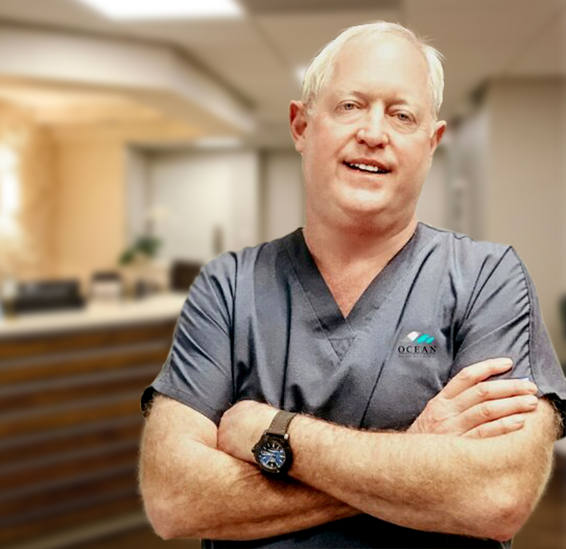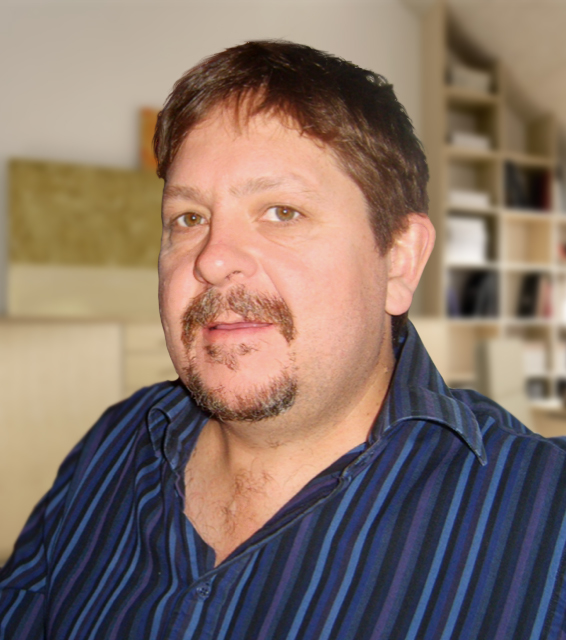Dental Implantology
About the Course
Essential learning is included in the Diploma in Dental Implantology who's supervisors and tutors are all experienced implant dentists and educators with a combined experience of over sixty years in their particular fields of implant dentistry.
The curriculum delivers the essential components expected by the General Dental Council (GDC) for registrants placing and restoring dental...
Essential learning is included in the Diploma in Dental Implantology who's supervisors and tutors are all experienced implant dentists and educators with a combined experience of over sixty years in their particular fields of implant dentistry.
The curriculum delivers the essential components expected by the General Dental Council (GDC) for registrants placing and restoring dental implants.
During the course you will learn how to use implant planning software and cone-beam computed tomography (CBCT) scans to predictably plan and place implants.
The course fee includes all the teaching material required for you to start your implant practice today.
At a Glance
Applicable to all dental implant systems.
You'll receive eight free dental implants worth £1,400. Three will be placed and restored under direct clinical supervision on the course and the remaining five may be placed under remote synchronous supervision at your own clinic.
Free dental implant placement software and support worth £1,200.
The course is a recognised stepping stone to the MSc degree in Dental Implantology also reducing the cost on your course fees.
At the end of the course you'll receive a free Nanodent implant kit worth £2,000.
Clinical training is provided once a month and implant surgery begins on day two to ensure you receive maximum clinical experience. Included is a one day induction programme and system orientation delivered face to face at our dedicated Southgate dental campus and teaching laboratory.
Course is supported by experts in their field with over sixty years of combined experience in the placement and restoration of dental implants together with providing hands on training courses.
The course runs for ten months with a fee of £9,500 (a monthly payment plan of £950 is offered).

Course Outline
Learning Outcomes
 Following the successful completion of the course you'll be able to:
Following the successful completion of the course you'll be able to:
Assess, diagnose and implement a treatment plan to meet the dental implant need for the patient.
Understand the prerequisites to achieve and maintain osseointegration.
Be able to interpret and plan dental implant cases on cone-beam computed tomography (CBCT) scans.
Know how to use computer-assisted technology for planning dental implant treatment and guided surgery.
Understand the treatment protocols specific to dental implantology.
Know the generic components and features of dental implants systems.
Appreciate and manage dental implant complications.
Obtain informed consent for dental implant treatment.
Assemble a professional portfolio of completed cases as evidence of clinical training as required for indemnity and General Dental Council.
Course Structure Term 1
Prerequisites for Osseointegration and Implant Patient Assessment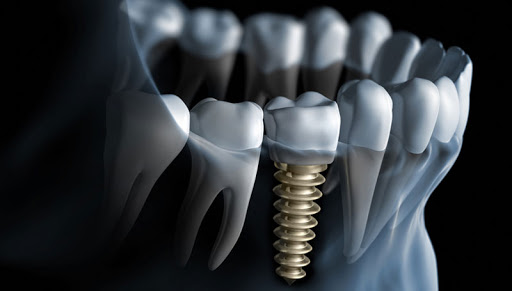
Osseointegration is a multifactorial phenomenon dependent on patient selection, surgical and restorative protocols and long term maintenance. This module considers the requirements that must be fulfilled in order to achieve and maintain osseointegration from both a histological and patient perspective. The most important prerequisite to the success of any proposed dental treatment is careful patient assessment and selection with regard to ensuring their suitability for treatment. This module considers the various assessment parameters in detail and identifies risks associated with the provision of advanced dental treatment modalities to certain patient types who should be carefully managed.
Course Structure Term 2
CBCT Restorative and Guided Implant Placement
Computer guided dental implantology means that even the novice can safely and predictably place implants. In the same way that clear aligner orthodontics makes it possible for GPs to benefit from expert preplanning and predictability, implants can be inserted and planned in much the same way. During the module, students will have the opportunity to plan their cases using planning software and will learn the technology, software and instrumentation which not only plans the positioning of the implants but also guides the clinical placement of the implants from a restoratively driven prospective.
Course Structure Term 3
Dental Implant Protocols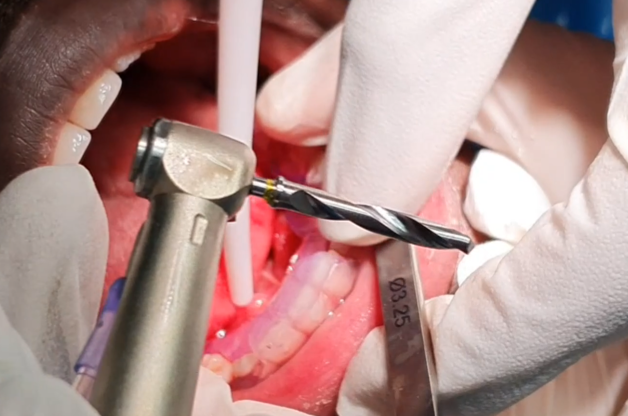
The surgical and restorative steps will be explained in detail and the importance of adherence to strict prosthetic principles and occlusion emphasised. This module considers the surgical management, placement and restorative protocols used to insert dental implants. The module explains the difference between bone level placement and tissue level placement, delayed and immediate placement protocols and immediate loading. Indications for the various placement types are discussed with their advantages and disadvantages clearly explained. It also covers the various prosthetic protocols used to restore dental implants and the management of complications. It considers the differences between transfer impression methods together with their limitations. Conventional as well as the latest digital techniques employed in the restoration of dental implants will be considered and compared in terms of cost, accuracy and clinical outcomes.
 This course, when completed, is your initial step to a full Masters degree in the professional practice of MSc Specialist Practice of Computer-Guided Implant Dentistry validated by the University of Bolton
This course, when completed, is your initial step to a full Masters degree in the professional practice of MSc Specialist Practice of Computer-Guided Implant Dentistry validated by the University of Bolton
Flexible Learning
Clinical Training
Clinical sessions will be organised once a month usually on weekends to facilitate the treatment of patients. During these clinical sessions you will have the opportunity not just to place dental implants but also to take them through to eventual complete restoration. On completion of the clinical component of the programme you will have restored a minimum of three dental implants under direct supervision and have the opportunity to place more if requested.
Clinical training offers remote synchronous training which permits students to place and restore dental implants in the own clinics. To facilitate this unique learning experience the programme will provide a further five dental implants and deliver all the equipment and instruments required to place your dental implants.
Programme Leaders
Actual dental implant placements on provided cases will be supervised by Professor Stewart Harding, the course leader and a clinical director. He is the Dean of The City of London Dental School and has delivered dental implant training programmes internationally, helping many dentists to realise their ambition of becoming a skilled implant specialist dental surgeon. |
Clinical Director: Dr. Eugene Marais Has been involved in implant dentistry since 1994. He gained his knowledge at the MISCH Implant Institute (MII) in Michigan and Pennsylvania , completing both the surgical and Prosthodontic programmes. He is no stranger to dental implant education working as professor at the University of Alabama, teaching surgical technique in a postgraduate programme. |
Technical Director: Ian Parvees Completed his training in Dental Technology in South Africa in 1984, since then has also set up numerous successful dental laboratory businesses in both South Africa and the United Kingdom. By 2005 having built up a very successful dental implant company he made the decision to sell the company back to the parent company in order to focus on his UK based dental laboratory. |





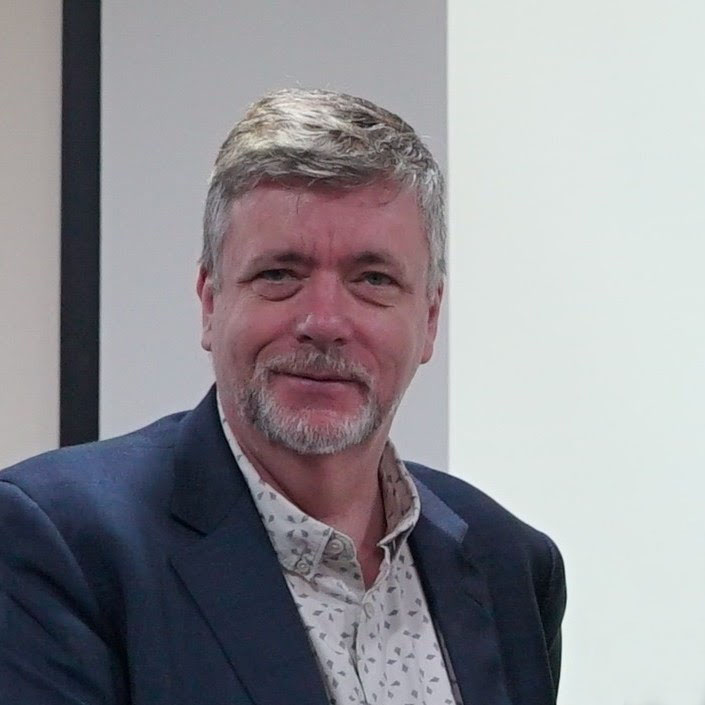 Course Director: Professor Stewart Harding
Course Director: Professor Stewart Harding 